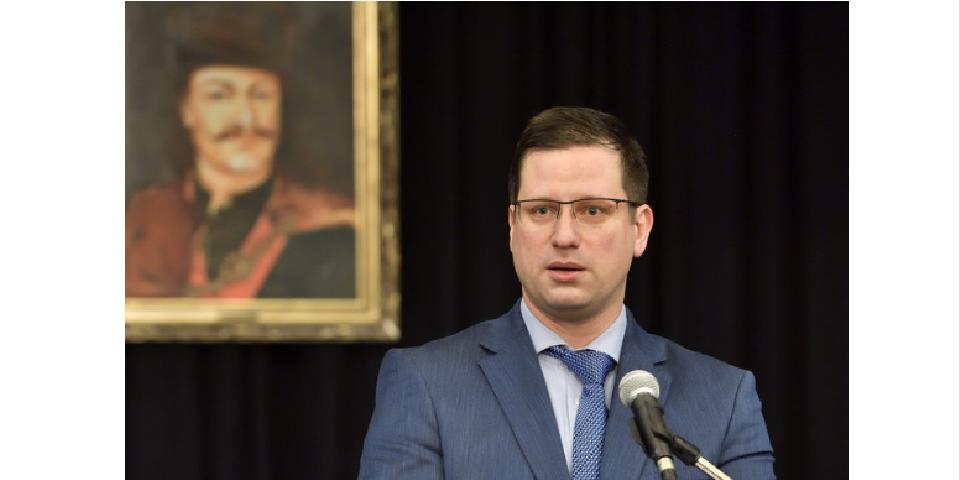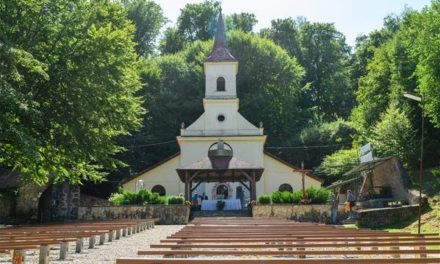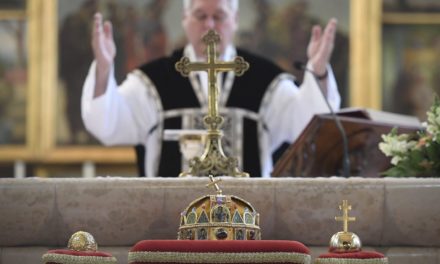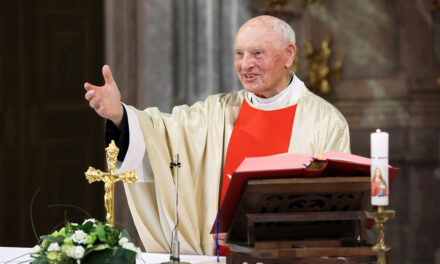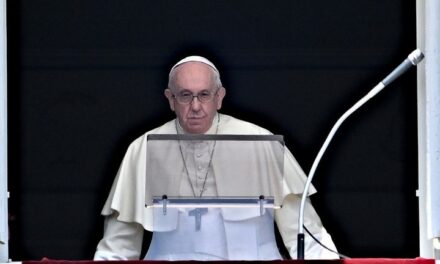The Reformed bishop Loránt Hegedűs and the founding of the Károli Gáspár Reformed University (KRE) were commemorated in the Church of the Homecoming in Budapest on Sunday under the title of Life-giving Idea.
Gergely Gulyás, the minister in charge of the Prime Minister's Office, recalled his personal memories in his speech held in the sub-church event hall of the Church of Homecoming and said that Loránt Hegedűs' ecclesiastical service did not end even after he finished his episcopal service.
The minister reminded him that, despite all the difficulties in his life and his long illness, Loránt Hegedűs was a deeply religious and balanced person, even in the last days of his life.
"Now, when we look back at the thirty years left behind us and (...) the history of the Reformed Church, it can be seen to what extent everything he did in the past decades is permanent," he pointed out. Among the legacies, Gergely Gulyás highlighted the greatness of Loránt Hegedűs as a pastor, church leader and scientist, in addition to the founding of the Károli Gáspár Reformed University.
He emphasized that he was an outstanding scientist of the Reformed Church, along with the Reformed bishop László Ravasz, "the greatest scientist of the 20th century and we can be proud that this scholarly work is also available". Therefore, publishing his sermons in books and audio materials will be the task of commemorating them for years to come, he underlined.
"His work is still decisive in modern Hungarian theology, and his books are foundations that cannot be ignored by those who wish to deal with Reformed theology in the 21st century," he said.
According to Gergely Gulyás, Loránt Hegedűs was one of the few who was the first to understand that system change is an opportunity for Hungary, but an opportunity that can be used badly. This could be the case, for example, of the weakening of national interests, and if the Reformed Church cannot create a permanent solution in this area, then the system change will not give enough positive results. He was also one of the first to recognize the importance of national unity and demographic survival, the minister underlined.
The minister recalled that the most often mentioned merit of the bishop was that he could not be dissuaded from founding the university even in the midst of great debates.
"We see that time has vindicated him, since from the point of view of science, Károli already has workshops that are considered among the best," he pointed out.
"The nation and the Reformed Church are lucky to have a bishop like Loránt Hegedűs, so it is our task and duty to honor him in a dignified manner. Everything that is part of his legacy gives the opportunity for the Hungarian Reformed Church to stay alive, strengthen, gain followers and thereby serve the whole and the good of the Hungarian nation in the coming decades," concluded the minister.
Lóránt Hegedűs is a reformed pastor and theologian, born in 1930 in Hajdúnánás and died in 2013 in Budapest. He continued his studies at the Reformed Theological Academy in Budapest, then from 1954 he was an assistant pastor in Bicské and between 1956 and 1958 in the Kálvin tér church in Budapest. Due to his role during the 1956 revolution, he had to leave the capital, then he was an assistant pastor in Nagykőrös, Monor, Komló and Alsónémedi. Between 1963 and 1983, Hidas was the pastor of the settlement congregation of Székely in Bukovina, and until 1996 of the Reformed Parish on Szabadság tér in Budapest.
Between 1991 and 1997, he held the position of pastor of the Synod of the Hungarian Reformed Church (MRE), and between 1991 and 2002 he was the bishop of the Dunamellek Church District.
He was also pastor of the Kálvin tér Reformed Parish in Budapest, executive chairman of the MRE Advisory Council, and was elected honorary chairman of the World Association of Hungarian Reformed People. He was co-chairman of the Christian-Jewish Society and also held the title of honorary chairman of Magyar Út Circles.
He taught at the Reformed University of Veszprém and the Károli Gáspár University of Budapest, where he later became an honorary professor. He was awarded an honorary doctorate in Cluj.
He gave lectures and sermons among Hungarians across the border, including in Toronto, Basel, New York, Los Angeles, Paris, London, Sydney and Cluj.
Source: Magyar Hírlap
Picture: Péter Lakatos

